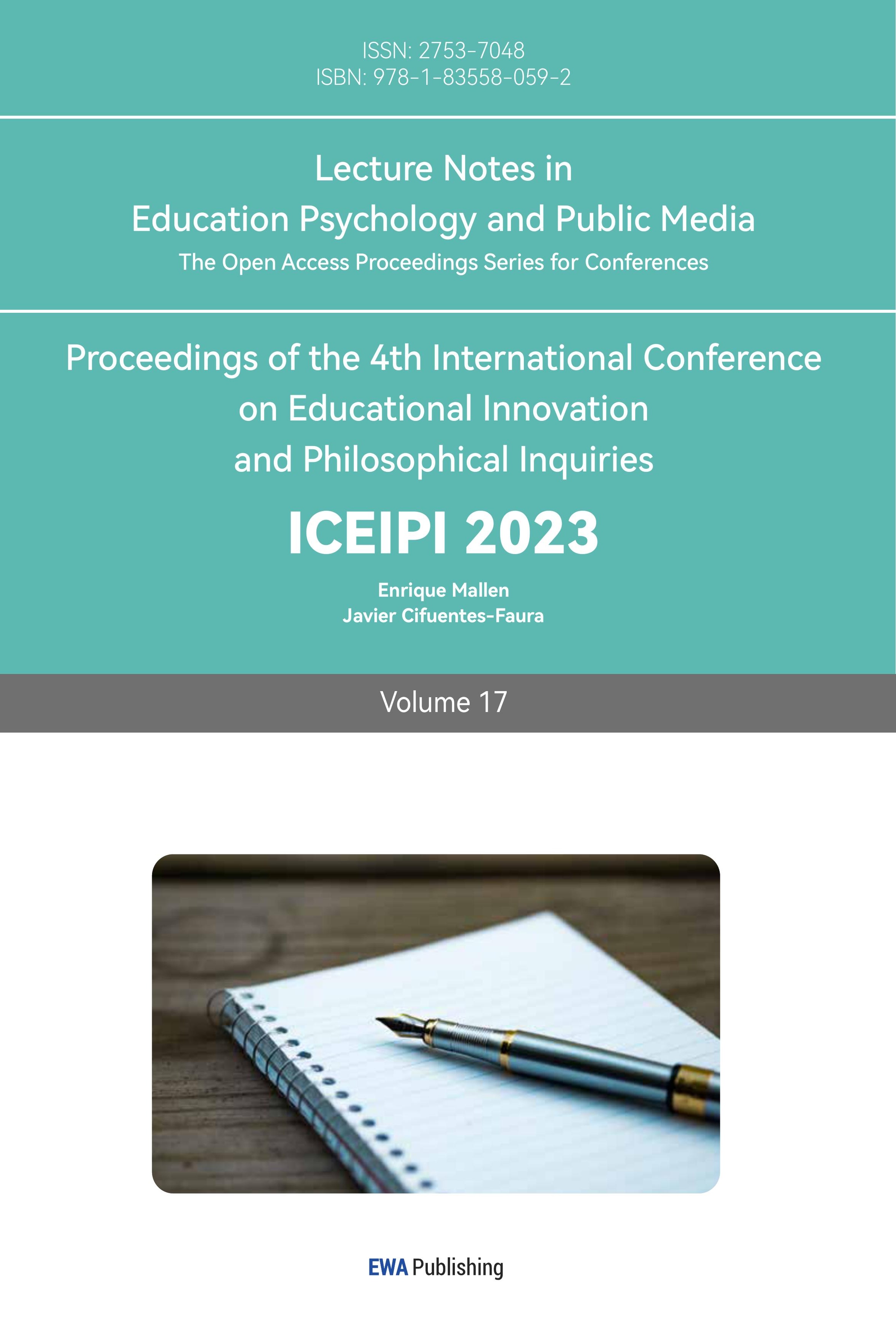References
[1]. Chinese Government. (2018) Amendment to the Constitution of the People’s Republic of China. Retrieved from http://www.gov.cn/xinwen/2018-03/11/content_5273222.htm.
[2]. Promoting the Construction of a Community with a Shared Future for the Sea. (2019), On Governing the Country (Volume III), Foreign Languages Press.
[3]. The South China Sea Arbitration. (2016) Award, 488-492.
[4]. Fisheries(United Kingdom v.Norway), I.C.J.Report. (1957), para.116.
[5]. Convention on the Territorial Sea and the Contiguous Zone. (1958) United Nations,Treaty Series, 516,205.
[6]. Baseline under the International Law of the Sea. (2018) International Law Association Reports of Conferences, 78,116-205.
[7]. Huang Huikang. (2013) Some Trends in Contemporary International Law: Report at the 20th Anniversary of the Military Law Department of Xi’an University of Political Science Journal of Xi’an University of Political Science, 4,90-93.
[8]. Zhu Lijiang, Yang Chengfu. (2017) On the Lawlessness of the UN General Assembly’s Establishment of Syria’s ‘‘International Impartial and Independent Mechanism’’. Wuhan University Review of International Law, 5, 54-70.
[9]. Zhong Shen. (2016) Arbitral tribunal expands power abuses seriously undermines international rule of law. People’s Daily.
[10]. Specialized Conference of Caribbean Countries Concerning the Problems of the Sea: Declaration of Santo Domingo. (1972) The American Journal of International Law, 66,5.
Cite this article
Qiao,Z. (2023). Controversial Issues in the Law of the Sea and Existing Resolution Strategies. Lecture Notes in Education Psychology and Public Media,17,29-35.
Data availability
The datasets used and/or analyzed during the current study will be available from the authors upon reasonable request.
Disclaimer/Publisher's Note
The statements, opinions and data contained in all publications are solely those of the individual author(s) and contributor(s) and not of EWA Publishing and/or the editor(s). EWA Publishing and/or the editor(s) disclaim responsibility for any injury to people or property resulting from any ideas, methods, instructions or products referred to in the content.
About volume
Volume title: Proceedings of the 4th International Conference on Educational Innovation and Philosophical Inquiries
© 2024 by the author(s). Licensee EWA Publishing, Oxford, UK. This article is an open access article distributed under the terms and
conditions of the Creative Commons Attribution (CC BY) license. Authors who
publish this series agree to the following terms:
1. Authors retain copyright and grant the series right of first publication with the work simultaneously licensed under a Creative Commons
Attribution License that allows others to share the work with an acknowledgment of the work's authorship and initial publication in this
series.
2. Authors are able to enter into separate, additional contractual arrangements for the non-exclusive distribution of the series's published
version of the work (e.g., post it to an institutional repository or publish it in a book), with an acknowledgment of its initial
publication in this series.
3. Authors are permitted and encouraged to post their work online (e.g., in institutional repositories or on their website) prior to and
during the submission process, as it can lead to productive exchanges, as well as earlier and greater citation of published work (See
Open access policy for details).
References
[1]. Chinese Government. (2018) Amendment to the Constitution of the People’s Republic of China. Retrieved from http://www.gov.cn/xinwen/2018-03/11/content_5273222.htm.
[2]. Promoting the Construction of a Community with a Shared Future for the Sea. (2019), On Governing the Country (Volume III), Foreign Languages Press.
[3]. The South China Sea Arbitration. (2016) Award, 488-492.
[4]. Fisheries(United Kingdom v.Norway), I.C.J.Report. (1957), para.116.
[5]. Convention on the Territorial Sea and the Contiguous Zone. (1958) United Nations,Treaty Series, 516,205.
[6]. Baseline under the International Law of the Sea. (2018) International Law Association Reports of Conferences, 78,116-205.
[7]. Huang Huikang. (2013) Some Trends in Contemporary International Law: Report at the 20th Anniversary of the Military Law Department of Xi’an University of Political Science Journal of Xi’an University of Political Science, 4,90-93.
[8]. Zhu Lijiang, Yang Chengfu. (2017) On the Lawlessness of the UN General Assembly’s Establishment of Syria’s ‘‘International Impartial and Independent Mechanism’’. Wuhan University Review of International Law, 5, 54-70.
[9]. Zhong Shen. (2016) Arbitral tribunal expands power abuses seriously undermines international rule of law. People’s Daily.
[10]. Specialized Conference of Caribbean Countries Concerning the Problems of the Sea: Declaration of Santo Domingo. (1972) The American Journal of International Law, 66,5.









